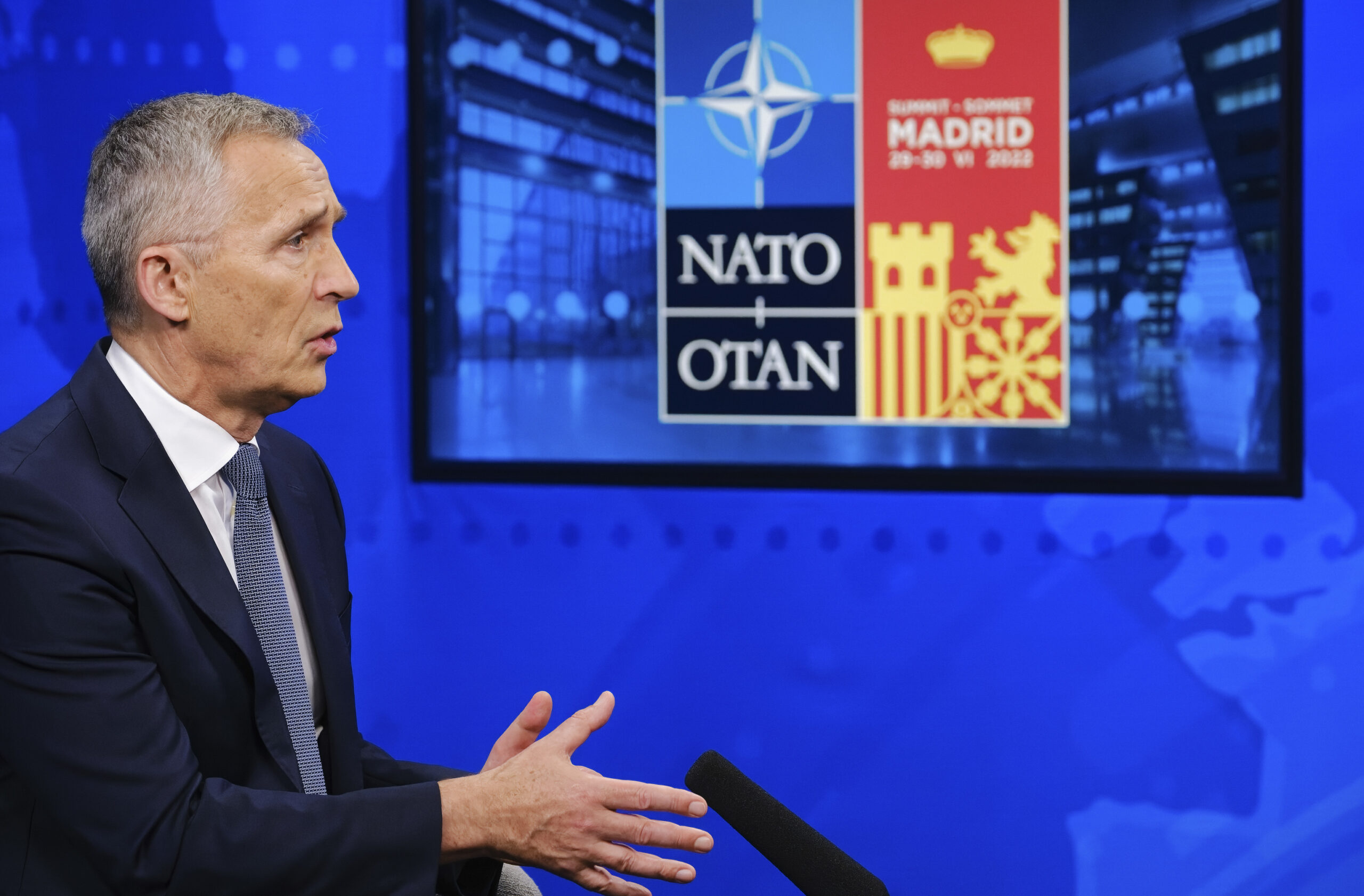NATO will approve this week in Madrid an unprecedented increase in its military capabilities. The joint very high readiness force (VJTF) will grow from 40,000 to 300,000 soldiers, ready to be deployed in a matter of days if necessary. This was explained by the general secretary, Jens Stoltenberg, at the press conference prior to the start of the meeting in the Spanish capital.
“At the Summit we will reinforce our forward defenses, bolstering our ‘battle groups’ in the eastern part of the Alliance to brigade levels. Likewise, we will transform the NATO Response Force by increasing the number of our high readiness forces to more than 300,000. We will also enhance our surge capacity in crisis and conflict situations, including more pre-deployed equipment and stockpiles of military supplies. More air defense, strengthened command and control, and enhanced defense planning, with forces pre-deployed to defend specific allies,” The Norwegian politician explained in an appearance before the press.
The Alliance has four groups in the Baltic countries and Poland and had already decided to add four more in the eastern flank countries that had none, from Bulgaria to Slovakia through Romania and Hungary.
NATO wants to change its way of operating, from ‘patches’ to structures in the East, from troops deployed on a provisional and rotating basis to permanent forces. Until now it was not possible, because the agreements with Russia, established in the Founding Act that is now 25 years old at its lowest point, expressly prevented it. The Baltics are crying out for a greater presence, clearer guarantees, which would imply, to begin with, practically doubling the number of troops. But not everyone is comfortable with the idea. Despite the current situation or precisely because of it.
At the Madrid Summit, NATO will approve its ‘strategic concept’, the roadmap of priorities and how to implement them over the next decade. The document must include many vectors, but the main one is very clear: the threat from the East. “Our new Concept will guide us into an era of strategic competition. It will be clear that allies view Russia as the most significant and direct threat to our security, and mention will be made of China and the challenges Beijing poses to our security, interests and values.” for the first time. It will also cover our plans for other threats and challenges, such as terrorism, cyber attacks and hybrid attacks,” Stoltenberg said.
That last part is one of the most interesting to Spain. The Government of Pedro Sánchez has been fighting for months so that the paper more explicitly collects the dangers of the ‘southern flank’ and the commitment of the organization. Due to the instability of the Sahel and due to doubts about the Defense umbrella that covers Ceuta and Melilla. The Washington Treaty includes protection for territories in Europe or America, which in theory would leave out the enclaves found on the African continent. It does mention the islands above the Tropic of Cancer, such as the Canary Islands, but there have always been misgivings in Spain due to the possible ambiguity.
Governments and diplomats assure that the different articles and clauses of solidarity and collective security make it clear that if Spain were attacked at any of its points, the defense would be automatic. But the more guarantees, the better, and that is why the delegations are fighting these days for explicit references or at least concepts such as “national sovereignty” or “territorial integrity.” Something that would not be valid specifically for Spain, but would send more messages.
Despite the pressure, the interest of the host and the speculations, the secretary general, however, has once again been vague in his words this Monday, putting himself once again in profile and reiterating that any decision that affects territories such as Ceuta and Melilla would be “political” and would be in the hands of the North Atlantic Council.
“We have to understand that the matter of invoking the Article and collective defense is a political decision. So it must be taken by consensus by all the allies in the Atlantic Council, assessing what matters on a case-by-case basis, that’s all I can say about that.” matter”, the Norwegian has limited himself to saying without getting a little wet.
To finance the deployment in the East, the protection of the south, the missions, the aid to Ukraine and to maintain the agreed levels of defense, money is needed. A lot of money. In 2014, in Wales, the allies promised to reach each and every one of them up to 2% of GDP in the matter, but now, eight years later, only nine of the 30 are there. The organization today released the most up-to-date data, showing that 19 members could reach the threshold in 2024, but the rest would not. And among them, in a prominent way, Spain, which once again occupies the bottom of the list, only ahead of Luxembourg.
Spain is at 1.02% of GDP, half of what was promised and light years ahead of Greece or the US, which top the list with 3.76 and 3.47% respectively. Ours is the host country and the one that has made the least relative effort in this aspect in the last decade, despite the fact that the Alliance values its contribution to all missions, the sending of troops or material or its commitment in other aspects.
Since 2014, the allies have invested 350,000 million dollars, and for eight consecutive years with increases in Security and Defense, despite economic difficulties and successive crises. “The 2% is increasingly considered the floor and not the ceiling,” Stoltenberg warned.
Conforms to The Trust Project criteria
















